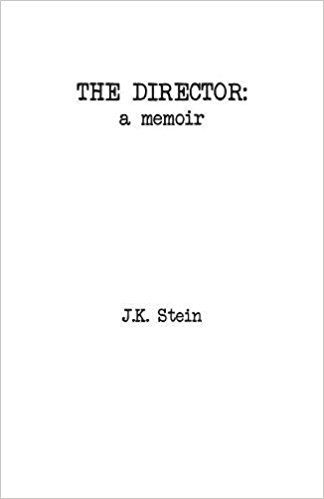Rarely has Hollywood been under as much scrutiny as it has been these last eight months. After the sexual assault allegations against producer Harvey Weinstein became national news last fall, accusations against several Hollywood executives in all parts of the industry began pouring in, and those in power are paying attention. Hearing testimony from abused women at all levels of the fame totem pole is difficult and heartbreaking, and J.K. Stein’s account in her memoir, The Director, is one of the most personal and detailed descriptions in the current rhetoric.
Memoirs like this don’t only mean something for Hollywood — the effects of the last eight months have spread to all workplaces, from blue collar to white, as well as college campuses.
The Director revolves around the abuse Stein suffered at the hands of an unnamed but well-known director in Hollywood that strung her along throughout a five-year relationship with the promise of a starring role in a movie. It also delves into Stein’s untouched journal entries from the time, allowing readers to watch as she explores her own self-esteem and philosophical values, and asks herself why she would allow herself to acquiesce in repeated situations of sexual and emotional abuse.
The Director not only describes the predator and their tactics, but also the victim, and how she got to a place mentally where she could allow herself to be abused, both physically and emotionally. Women who are in abusive and manipulative situations may see themselves in this book and be able to better understand their own emotions and uncertainties by reading Stein’s rationale behind every decision she made in regards to her own unhealthy relationship.
While the memoir is uncomfortable and dark, it has a redemptive quality that is clear from the beginning. The reader understands that Stein will eventually leave this relationship and learn to heal and forgive herself for the involvement. The story starts with a foreword from Stein, where she has started journaling years after her abuse about the therapy she is experiencing and the healing that is beginning to take place. This was a calculated move that allows the reader space to breathe as they read in a present tense what is happening to Stein. The reader can focus on the moment rather than how it will end, making each indecency committed by The Director or Stein herself that much sharper, as we know that she will pull through. The ending of the memoir recaps Stein as she goes through years of healing, and the reader experiences the reflections that Stein is having now, as she makes sense of her past self that the reader has just spent 120 pages with.
Stein was young at the start of her relationship with the director. She struggled with an eating disorder and multiple emotional problems. As much as she blames The Director’s manipulation for their involvement, she equally attributes her own need for self-punishment for what she deemed lacking in her own physical appearance and emotional value as a causal factor. There is more to this story than finger-pointing at a deplorable man; the reader learns that Stein’s situation was one of dark, complex turmoil, both externally and internally.
While Stein began an abusive relationship at the same time she was involved with the director, she understands what is happening to her but allows it to continue. This darkness is extremely difficult to read yet gives a new depth to the narrative of Hollywood predators.
This memoir became available to audiences during an important moment in feminist and rape culture history, in Hollywood, the workplace at large and college campuses. We are finally ready to hear these narratives and hold those guilty accountable for their actions. The Director is especially applicable to our campus community, as students come forward with cases of sexual assault that may not always have clear-cut evidence, or an easy storyline to follow. Assault and abuse does not always follow simple steps that can be relayed. It is still important to listen to and provide support for these victims. Victims on campus reading The Director will also recognize the insecurity Stein is facing at each encounter, and the uncertainty of where each date will lead. The Director is a memoir fitting for these times, and several levels of our community would benefit from reading this book.
J.K. Stein’s The Director is available now.
For those who need to tell their story and receive support, contact the PCC or Project Safe.

